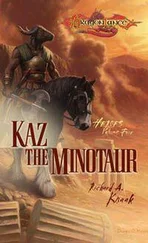I could only think that there must be a mistake somewhere but speculation when one is in possession of so few facts is useless. My companion this time wore the look of a woman gleeful at bringing a delightful surprise to someone else, quite different from Zorah's supercilious expression.
‘It's amazing,’ I said, pleasing her.
Dante, I seemed to remember, was conducted by Virgil round the infernal regions and I wondered if his guide enjoyed himself as much as Ella seemed to enjoy taking me round the labyrinth library.
‘If you come on your own,’ she said, ‘you'll have to bring a ball of wool and unravel it behind you like what's-his-name in that place in Crete.’
Did they all say that when they brought in a visitor? Still, it must happen seldom. She had told me so much, yet so little. So few mysteries had been solved. There seemed to me then to be a life going on in this family and this house underneath the existence they presented to the world and me, a secret force like that which Eric had described that morning as the workings by which God subdues all things to himself.
We made our way back to the double doors, along the narrow and tortuous passages where books themselves were the bricks and mortar forming the walls. That dust itself has a smell was a discovery I made that afternoon. I learnt too how claustrophobia may suddenly come into being in someone who has never known it before. Without being exactly difficult, breathing became something of an effort and panic fluttered under the mind's surface. Coming out of there and into the hot sunshine of the garden was more than relief, it was like stepping into another world.
Ella had gone to put the key back behind the amphitheatre engraving. I was alone, breathing deeply, relishing the light and the warmth, the grass and the green branches swaying in the breeze.
12
Ella was out a long time. She had left to meet Felix Dunsford at six. I refused to take part in the discussion which started at ten as to why she was still out. One after the other, at five-minute intervals, the Cosways remarked that four hours was a very long time to spend in the White Rose, Mrs Cosway adding that she couldn't understand why anyone would go in there at all. I alone, it seemed, supposed that a good part of it had been spent elsewhere, most likely at The Studio.
We were watching television when Ella came in. Or the television was on and Mrs Cosway was watching it. Without looking round, she said sourly, ‘You have missed the only good programme we've had this year.’
‘No doubt you had something better to amuse you,’ said Winifred.
‘I had something different.’
Ella looked pensive. She was unusually silent, though she kept glancing at me and I expected to be asked to come to her room with her. Since her campaign of making me her friend had begun, she also increasingly made me her confidante. The revelations about the will had been followed a day or two later by a detailed account of her affair with the married man and there had been a drive around the villages, undertaken, I think, to point out to me the ‘close’ of modern houses where he lived. But that evening the invitation I expected never came and it was the end of the week and August before she asked me in a mysterious voice, loaded with suspense, to come and sit in the garden with her. Apparently she had run out of rosé for she brought out a tray with coffee in a pot and two cups and set it on the table under the mulberry tree. The gardener was mowing one of the distant grassy areas, an endless task in summer when the lawns are extensive and one has only a small hand-mower.
‘I know it's your favourite,’ Ella said. ‘I got it specially,’ and it was true I had expressed a preference for coffee over tea. ‘We won't be disturbed down here.’
The garden was tended twice a week by a morose and silent man called Cox, a relative of Mrs Waltham the postmistress, and so it had a far less neglected look than the house. His services of course were paid for out of the trust, as were mine. With dreadfully inadequate tools, he kept the grass mown and the hedges trimmed and if there were no flowers to be seen, perhaps the colour they would have brought was not to be associated with Lydstep Old Hall. It was a close, humid day without much sun, the sky overcast but not really threatening rain or any change in the dull weather. Coffee in the garden was a good idea but not the place Ella had chosen. In August mulberry trees drop their moist dark purple fruits, which, when they flop on to a hard surface, look like coagulating blood. Even on grass the stains are unpleasant and there were plenty of these round the table. My own jeans and shirt were black and liable to come to no harm but Ella wore her stripy frock and I dreaded the effect on her of a mulberry splitting open on her skirt.
Balkan Sobranie cigarettes were produced and our cups filled. ‘We ought to keep silkworms,’ said Ella with one of her giggles. ‘All these mulberry leaves just go to waste. I wonder if there's any profit in it. We could do with an increase to our income.’ I had no opinion to offer on silk production, so only smiled. ‘I've got something to tell you,’ she went on unsurprisingly. ‘I wonder what you'll think of me. Of course, being Scandinavian, you won't be shocked.’
I don't much like being lumped together with Danes, Norwegians and Finns as if we were all a single tribe, looking and feeling the same, holding to the same principles or lack of them, spending our time reading Hans Andersen and going to plays by Ibsen, all gloomy and suicidal alcoholics and all of us leading sexual lives like characters in I Am Curious – Yellow , a daring film of the time. But I said nothing.
‘Well, here goes then.’ She looked up at me, then away. ‘I've slept with him. We didn't waste much time, did we? Oh, not that first time, not that evening I came home and Mother said I'd missed some TV programme, not then. Two days later, actually. That first evening – well, we didn't go all the way . You'll say I shouldn't be telling you this.’ I interrupted to assure her I wouldn't. ‘Really?’ she said. ‘It's funny but it's easier telling you things like this because English isn't your mother tongue, is it? So I don't feel words have the – well, the resonance they'd have with Zorah, say – God forbid! – or Winifred. Do you know what I mean?’
‘Of course,’ I said, hoping very much that her assessment of my grasp of the English language would not lead her into clinical detail or a run-down on what he said to her and she said to him.
‘Because we are friends, aren't we, Kerstin? We can tell each other things we wouldn't tell other people?’
I was strangely moved by this. She was thirty-seven but she talked like a fifteen-year-old and an insecure one at that. ‘You can be sure I won't tell anyone, Ella,’ I said. And I meant it and stuck to it – while this was possible. Neither of us could have foreseen what was to come when the diary became an important piece of evidence and I would have to speak and tell everything I knew. But not for the life of me could I think of anything more to say to her or ask her. I could smile, I could look attentive and drink my coffee – and a great deal better than Ida's it was.
‘He's a very good lover,’ she said, lighting a cigarette.
That comment has always embarrassed me, as do all such words as ‘performance’ and ‘technique’ in this connection. They seem to reduce lovemaking to a stage production or display and to herald that clinical detail I feared. Perhaps something in my expression warned her of my distaste, for she quickly changed tack, saying, ‘He wants me to spend the whole weekend with him. I'd have to lie to Mother and Ida if not to Winifred, I couldn't tell them what I was really doing. And Felix feels the same. He wants us to be discreet. For the sake of my reputation, I suppose. To protect me.’
Читать дальше












